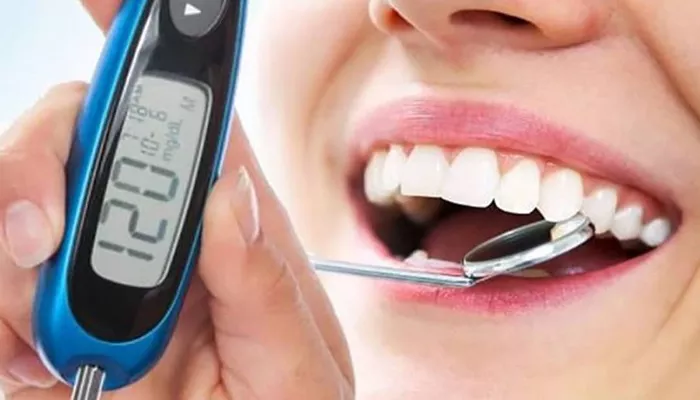Periodontal disease, commonly referred to as gum disease, is a chronic inflammatory condition affecting the tissues surrounding and supporting the teeth. It is caused by the accumulation of plaque, a sticky film of bacteria that forms on the teeth and gums. Left untreated, periodontal disease can progress to more severe forms, including gingivitis and periodontitis, leading to tooth loss and potential systemic health issues. Various treatments are available to manage and prevent periodontal disease, including oral rinses. One such product often recommended is Listerine. This article aims to provide a detailed and easy-to-understand explanation of whether Listerine is good for periodontal disease, with clear subtitles and explanations suitable for a popular science audience.
Understanding Periodontal Disease
Periodontal disease is an inflammatory condition that affects the gingiva (gums), periodontal ligament, cementum, and alveolar bone. It begins with the accumulation of plaque, a biofilm of bacteria that adheres to the teeth and gums. The bacteria in plaque produce toxins that irritate and inflame the gums, leading to gingivitis, the first stage of periodontal disease. If left untreated, gingivitis can progress to periodontitis, a more severe form of gum disease that involves the destruction of the bones and tissues that support the teeth.
The Role of Antiseptic Oral Rinses
Antiseptic oral rinses are oral healthcare products that contain active ingredients designed to kill or inhibit the growth of bacteria in the mouth. These rinses are commonly used as an adjunct to daily oral hygiene practices, such as brushing and flossing, to help reduce plaque and prevent gum disease.
What is Listerine?
Listerine is a popular antiseptic oral rinse that has been used for over 100 years. It contains several active ingredients, including eucalyptol, menthol, thymol, and methyl salicylate, which are collectively known as the essential oils. These ingredients have antibacterial and anti-inflammatory properties that can help reduce plaque and inflammation in the mouth.
How Listerine Works for Periodontal Disease
The essential oils in Listerine have been shown to have antibacterial properties, which can help reduce the number of bacteria in the mouth. By reducing the bacterial load, Listerine can help prevent the formation of plaque and the inflammation associated with periodontal disease. Additionally, the anti-inflammatory properties of the essential oils can help reduce gum inflammation and promote healing.
Clinical Evidence for Listerine’s Effectiveness
Several clinical studies have investigated the effectiveness of Listerine for the prevention and treatment of periodontal disease. These studies have generally shown that using Listerine as an adjunct to daily oral hygiene practices can help reduce plaque, gingivitis, and pocket depth (a measure of the space between the tooth and gum).
For example, one study compared the effectiveness of Listerine to a placebo rinse in reducing plaque and gingivitis in adults with mild to moderate gingivitis. The study found that using Listerine twice daily for 30 seconds, in addition to daily brushing and flossing, significantly reduced plaque and gingivitis compared to the placebo group.
Another study investigated the effectiveness of Listerine in reducing pocket depth in patients with chronic periodontitis. The study found that using Listerine as an adjunct to scaling and root planing (a common periodontal treatment) significantly reduced pocket depth and improved clinical attachment levels (a measure of the health of the gum tissue attached to the tooth).
Considerations for Using Listerine
While Listerine can be a useful adjunct to daily oral hygiene practices for preventing and treating periodontal disease, it is not a replacement for brushing and flossing. Regular brushing and flossing are essential for removing plaque and food particles from the teeth and gums, while Listerine can help reduce the bacterial load and inflammation in the mouth.
Additionally, it is important to note that Listerine may not be suitable for everyone. Some individuals may experience sensitivity or irritation of the mouth, gums, or tongue when using Listerine. If you experience any discomfort or adverse reactions, discontinue use and consult your dentist or physician.
Conclusion
In conclusion, Listerine is a popular antiseptic oral rinse that contains essential oils with antibacterial and anti-inflammatory properties. Clinical studies have shown that using Listerine as an adjunct to daily oral hygiene practices can help reduce plaque, gingivitis, and pocket depth, making it a useful tool for preventing and treating periodontal disease. However, it is important to note that Listerine is not a replacement for regular brushing and flossing and may not be suitable for everyone. Consult your dentist to determine if Listerine is an appropriate adjunct to your oral hygiene routine.By understanding the role of antiseptic oral rinses like Listerine in preventing and treating periodontal disease, individuals can take proactive steps to maintain their oral health and reduce the risk of tooth loss and systemic health issues associated with gum disease.
Related topics:

